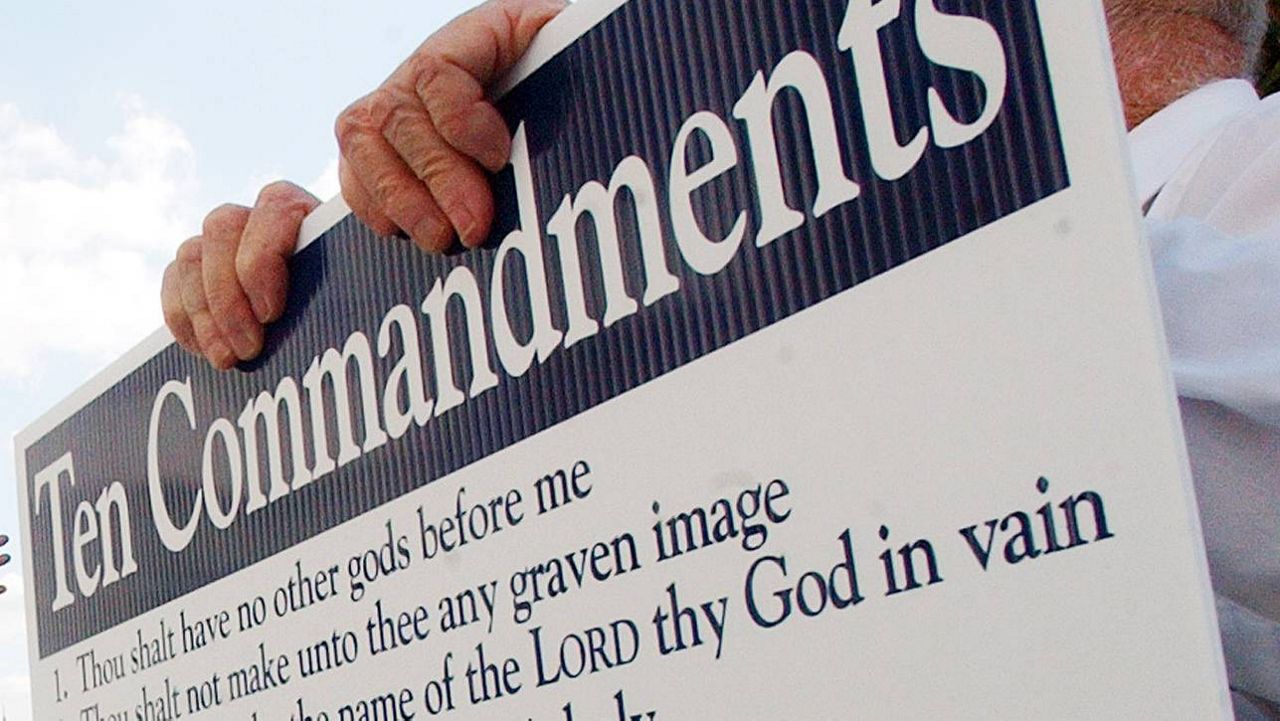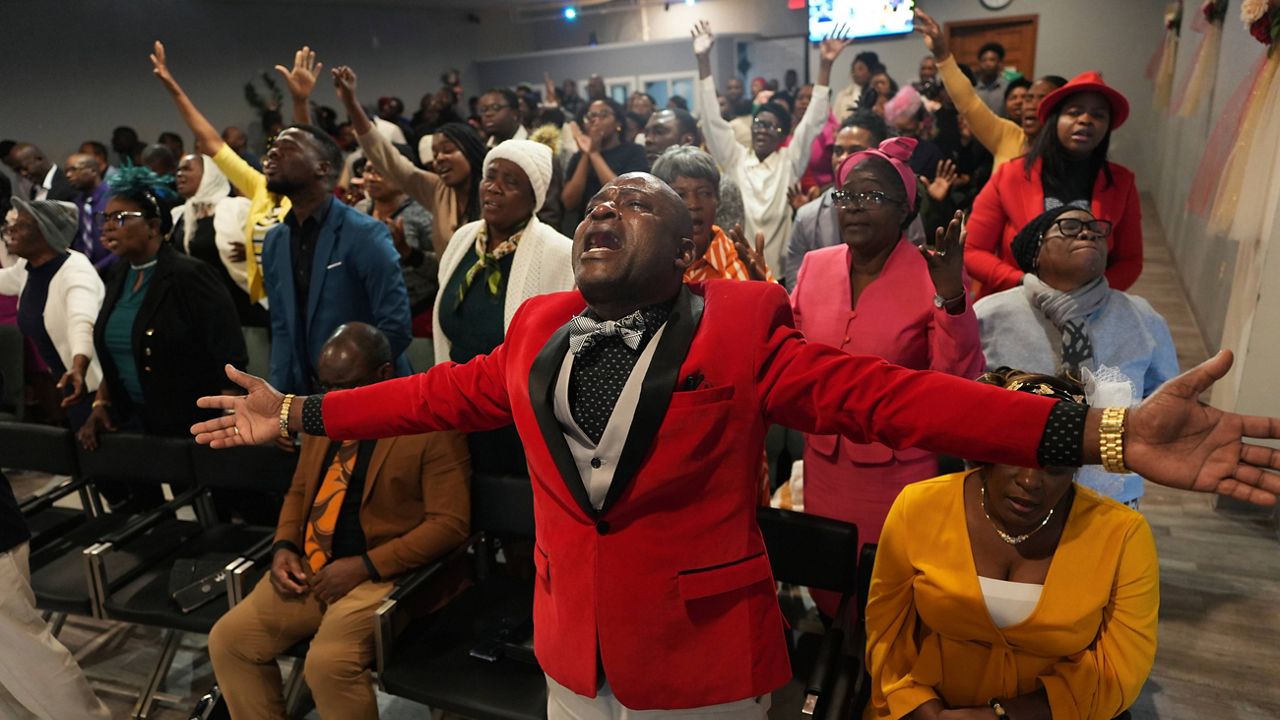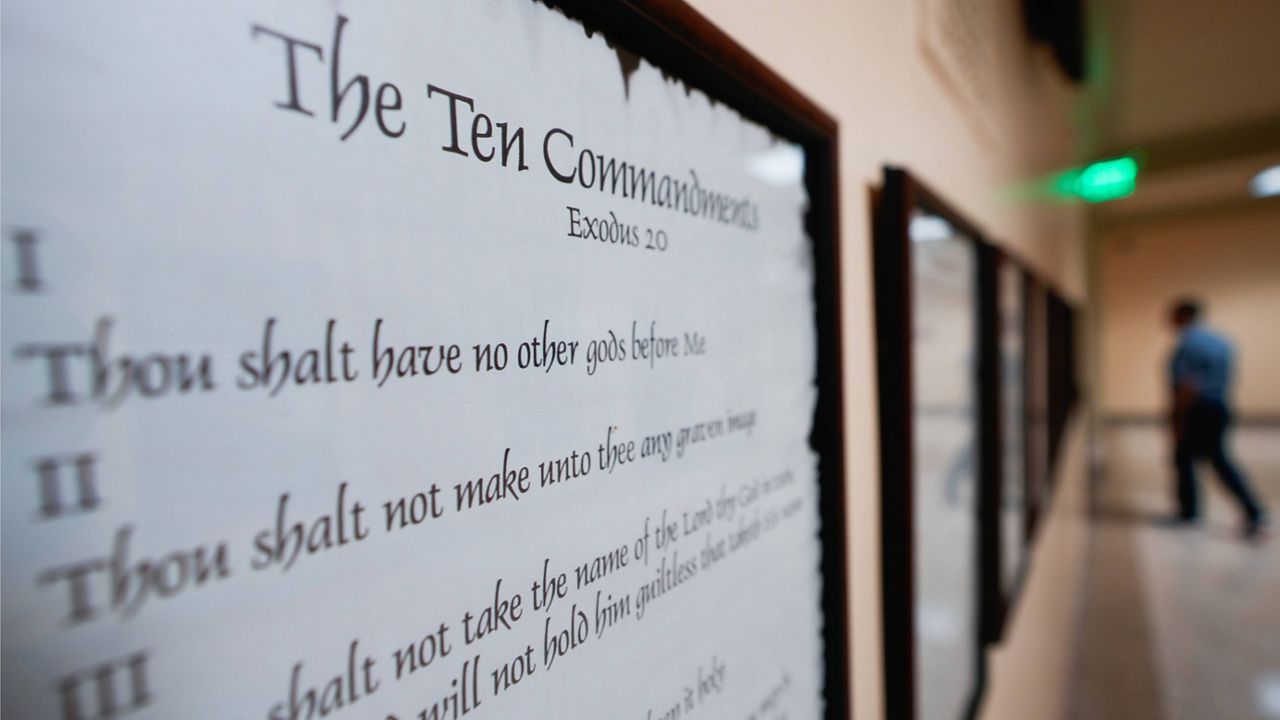Louisiana could soon become the first state to require the Ten Commandments be displayed in classrooms after its Senate overwhelmingly passed a bill Thursday.
What You Need To Know
- Louisiana could soon become the first state to require the Ten Commandments be displayed in classrooms after its Senate overwhelmingly passed a bill Thursday
- The legislation, introduced in the House by Republican Rep. Dodie Horton, would mandate the Ten Commandments appear in every classroom at every public K-12 school as well as colleges and universities
- The legislation raises concerns that it could violate the First Amendment clause against making laws “respecting an establishment of religion"
- But Republican lawmakers said they are emboldened by the Supreme Court’s 2022 decision in favor of a Washington state high school football coach who was fired for praying on the field after games
The legislation, introduced in the House by Republican Rep. Dodie Horton, would mandate the Ten Commandments appear in every classroom at every public K-12 school as well as colleges and universities.
The Senate approved the measure 30-8. Because the Senate made changes to the bill, the House must approve it again before it can be sent to Republican Gov. Jeff Landry to be signed.
The legislation stipulates the displays must be on posters or framed documents at least 11 x 14 inches, the text of the commandments must be the focus of the poster or document, and it must be printed in “a large, easily readable font.”
The Senate amended the bill to say that the displays must be donated or paid for with donations.
The legislation raises concerns that it could violate the First Amendment clause against making laws “respecting an establishment of religion.”
But Republican lawmakers said they are emboldened by the Supreme Court’s 2022 decision in favor of a Washington state high school football coach who was fired for praying on the field after games. The legislators argue they are on firm legal ground because the Supreme Court ruled the Constitution’s establishment clause should now be interpreted by “reference to historical practices and understandings.”
The GOP lawmakers insist the Ten Commandments are appropriate because they are historically significant.
“The Ten Commandments are the basis of all laws in Louisiana,” Horton said on the House floor last month. “And given all the junk our children are exposed to in classrooms today, it's imperative that we put the Ten Commandments back in a prominent position.”
She added: “What this bill does [is] simply displays them [the Ten Commandments] in each classroom for our children to look up and see what God says is right and what he says is wrong. It doesn't preach a certain religion, but it definitely shows what a moral code that we all should live by is.”
Both Horton and Sen. Adam Bass, also a Republican, noted the Ten Commandments are displayed at the U.S. Supreme Court building.
Sen. Royce Duplessis, a Democrat, said he thinks the bill has “serious constitutional concerns.” He predicted the law would be struck down in the courts and the state would spend valuable resources defending it.
“I was raised Catholic,” he said. “I am still a practicing Catholic, OK? But I didn't have to learn the Ten Commandments in school. We went to Sunday school. That's why we have church. You want your kids to learn about the Ten Commandments? Take them to church.”
Duplessis also pressed Bass on what would happen if a school did not receive the donations to pay for the displays, which Bass acknowledged he did not have an answer for.
“Sounds like an unfunded mandate to me, an unconstitutional one,” Duplessis said.
The American Civil Liberties Union, the ACLU of Louisiana, Americans United for Separation of Church and State, the Freedom from Religion Foundation, and the Southern Poverty Law Center issued a joint statement Thursday saying they are “deeply concerned” about the legislation.
“This bill is unconstitutional,” they said. “The state may not require public schools to display the Ten Commandments in classrooms. Many faith-based and civil-rights organizations oppose this measure because it violates students’ and families’ fundamental right to religious freedom.
“Our public schools are not Sunday schools, and students of all faiths—or no faith—should feel welcome in them,” they added.
The groups said they are closely monitoring the bill and called on Louisianians who oppose it to contact their representatives and governor.
The legislatures in South Carolina, Texas and Utah have recently considered similar bills.
Ryan Chatelain - Digital Media Producer
Ryan Chatelain is a national news digital content producer for Spectrum News and is based in New York City. He has previously covered both news and sports for WFAN Sports Radio, CBS New York, Newsday, amNewYork and The Courier in his home state of Louisiana.







